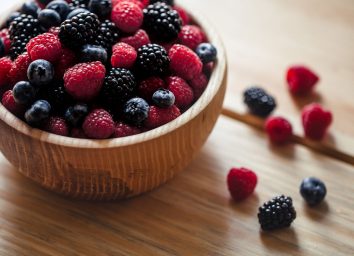7 Healthy Diet Changes That Improve Your Memory

Unless you’re one of the lucky ones who have been blessed with a photographic memory, most people could admit that they desire to improve their memory in some way or another—whether to clear up some fogginess after a brain injury, reverse mental decline or they’re just forgetful.
Activities like meditation, studying, and even doing crossword puzzles have been said to give memories a helping hand in working to their fullest potential. But there’s also something that’s fairly simple to do to help boost memory: make small changes in your diet.
Here are some healthy diet changes that can make a lasting impact on your memory, and for even more healthy tips, be sure to check out our list of The 7 Healthiest Foods to Eat Right Now.
Take in more leafy greens.
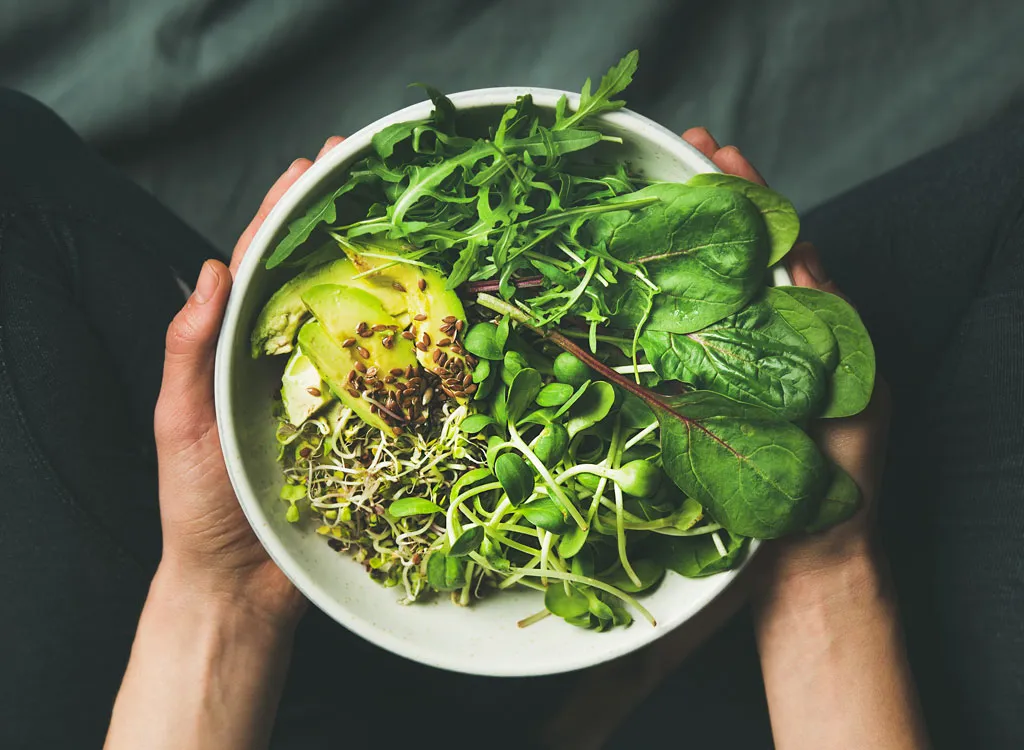
Remember as a kid when you couldn’t leave the table until all of the greens on your plate were gone? Although we might not have appreciated it, even from an early age there’s an understanding that leafy greens are a healthy source of vitamins. According to health coach Cecilia M. Serban, leafy greens like kale, microgreens, and spinach are packed with vitamins that are beneficial to brain function and memory.
“Leafy greens such as kale, spinach, collards, and broccoli are rich in brain-healthy nutrients like vitamin K, lutein, folate, and beta carotene,” Serban says.
Here are The Healthiest Types of Lettuce and Leafy Greens — Ranked by Nutrition.
Pick blueberries for a snack.
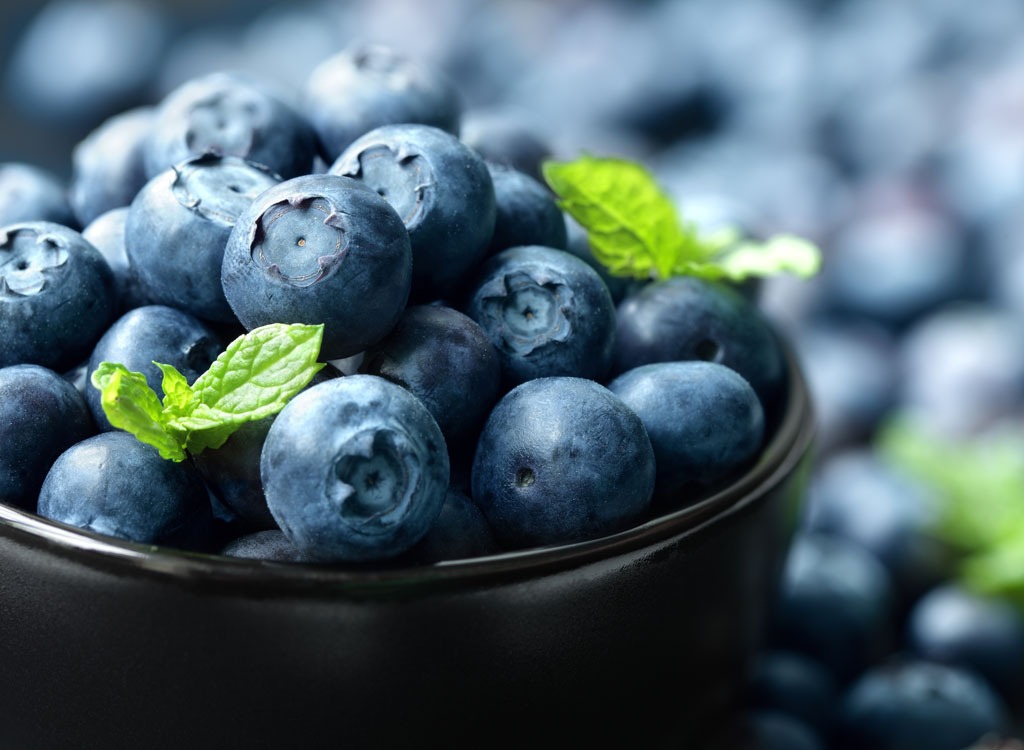
Blueberries go great with nearly everything—in a smoothie, on top of pancakes, in a fruit salad. The same can be said for several other berries as well. They’re healthy and delicious treats, and on top of that, they can even help boost your memory.
“Berries, especially dark ones like blackberries, blueberries, and even cherries, can greatly benefit your memory function as well,” says Ashlee Van Buskirk, the owner of the fitness and nutrition coaching business WholeIntent. “This is because they are packed with anthocyanins and other flavonoids that have been thoroughly studied and linked to memory function.”
No wonder blueberries are considered The One Snack Food To Eat for a Longer Life!
Whip up an omelette, or two.

Rather than pouring another bowl of sugary cereal, or an instant breakfast that can be made in the microwave or toaster, consider switching to a regular consumption of eggs in the morning to make an impact on your memory.
“Growing research indicates that choline, a nutrient found in eggs, may have important benefits for cognition in older adults,” Registered Dietitian Katherine Brooking says. “New studies are exploring how choline throughout life may have lasting effects on cognition and one study found moderate egg consumption may have a beneficial association with certain areas of cognitive performance in middle-aged to older adults.”
Need some ideas? Check out our list of 71+ Best Healthy Egg Recipes.
Stock up on salmon.
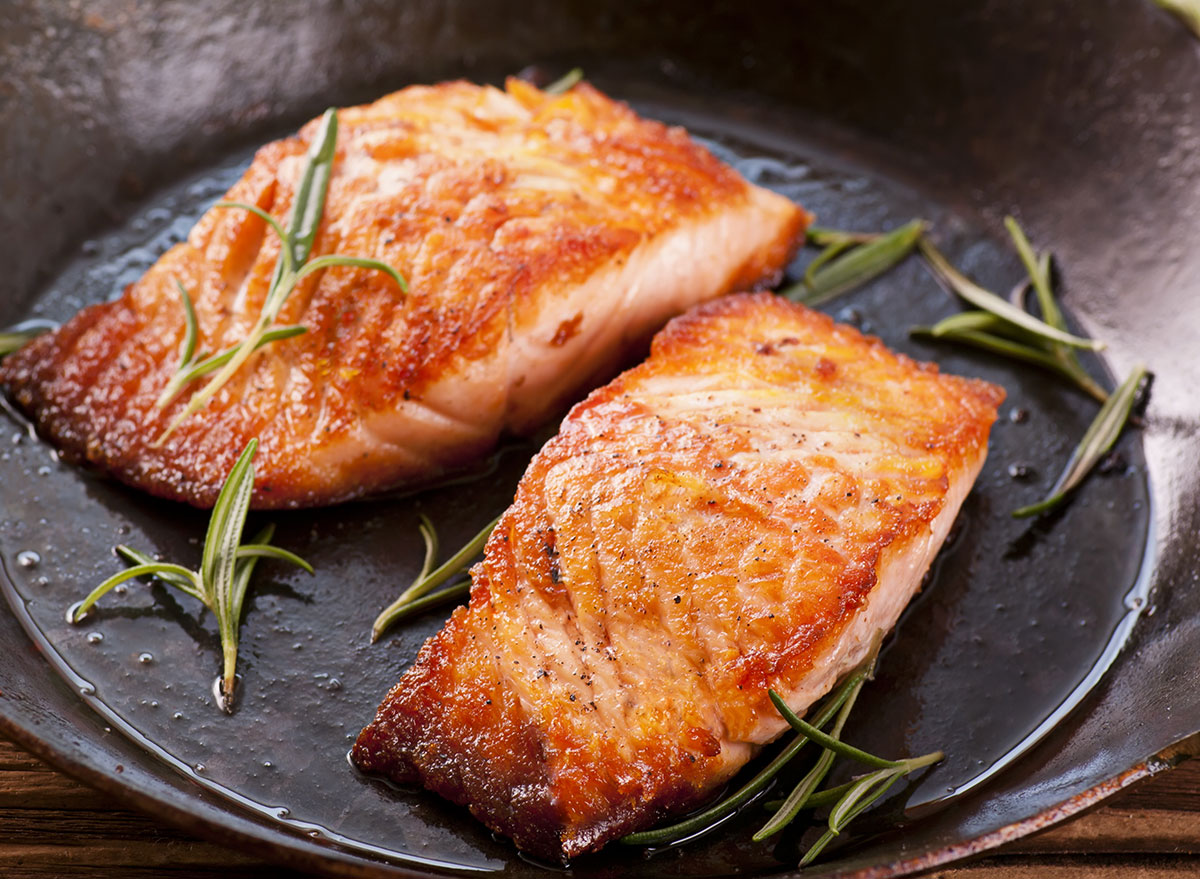
A good way to start building the brainpower that will lead to a more lasting memory is by consuming foods that contain omega-3 fatty acids, like nuts, seeds and cold-water fish like salmon. A study by Harvard Health found that there is an encouraging link between consuming the polyunsaturated fats and building a stronger memory.
“A study showed that after 6 months of omega-3 supplementation, the cognition level and memory of the young adult test subjects had increased,” says Kerri Axelrod, a holistic health coach and nutrition consultant.
Plant oils and certain fortified foods are also high in omega-3 fatty acids. Stock up on some of these foods with this list of 26 Best Omega-3 Foods.
Moderate your alcohol content.

Think about your last wild night out—it might be hard to remember and not just because the pandemic has kept us all inside for so long. It’s not much of a surprise to learn that alcohol has a negative impact on memory, and while it’s common knowledge that drinking can lead to hazy memories, it’s less commonly known that binge drinking directly impacts your brain’s capability to store memories.
“Repeated episodes of binge drinking can damage the hippocampus, a part of your brain that is essential for your memory,” says Van Buskirk. “You can have a drink or two now and again, but try to avoid excessive alcohol intake, especially on a regular basis.”
Add turmeric to your recipes.
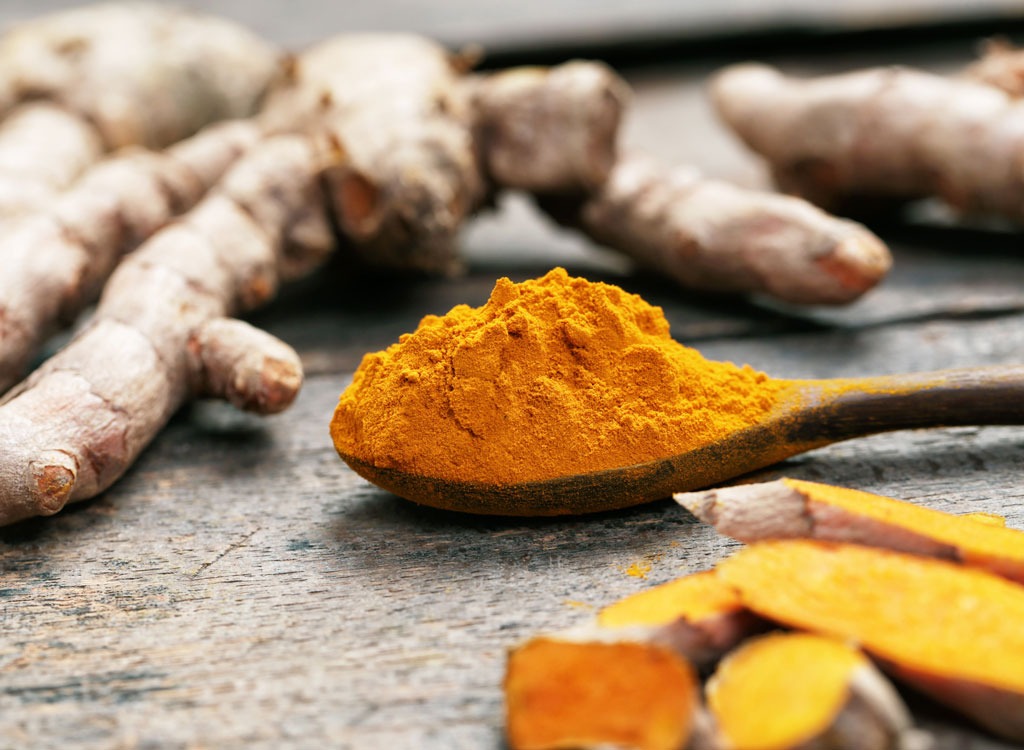
With a bitter, musky taste, turmeric is a valuable spice addition to foods like curries, rice pilaf, or soup—adding a kick of colour with its orange hue as well. It also makes a tasty addition to eggs, salad dressing, and smoothies. Turmeric is not just beneficial for the taste buds, it can also be helpful for strengthening memory skills.
“In a study done on curcumin, the main component of turmeric, it was shown that the memory of many Alzheimer’s patients increased significantly after the introduction of turmeric in supplement form,” Axelrod says.
Axelrod recommends using black pepper alongside turmeric, as it increases curcumin absorption.
Here are 5 Foods To Help Prevent Alzheimer’s, According to Doctors
Hydration’s not just for skincare.

Read any interview with a celebrity on their glowing skin and “skincare routine” and the answer is almost always the same—they just drink a ton of water. Whether they’re being fully truthful or not, the benefits of staying well-hydrated have not gone unnoticed. The Mayo Clinic recommends drinking 15.5 cups of water per day for men and 11.5 cups of water per day for women. as water promotes cardiovascular health, cleanses your body, and keeps skin looking great. According to Megan Byrd, RD and food blogger at The Oregon Dietitian, it’s also great for keeping your memory sharp.
“Many studies have shown that even being slightly dehydrated can decrease your attention and short-term memory,” says Byrd. “Just by drinking more water, you can improve your cognitive function and memory.”
Get started on your water intake today! Here’s How Much Water You Need to Drink.
